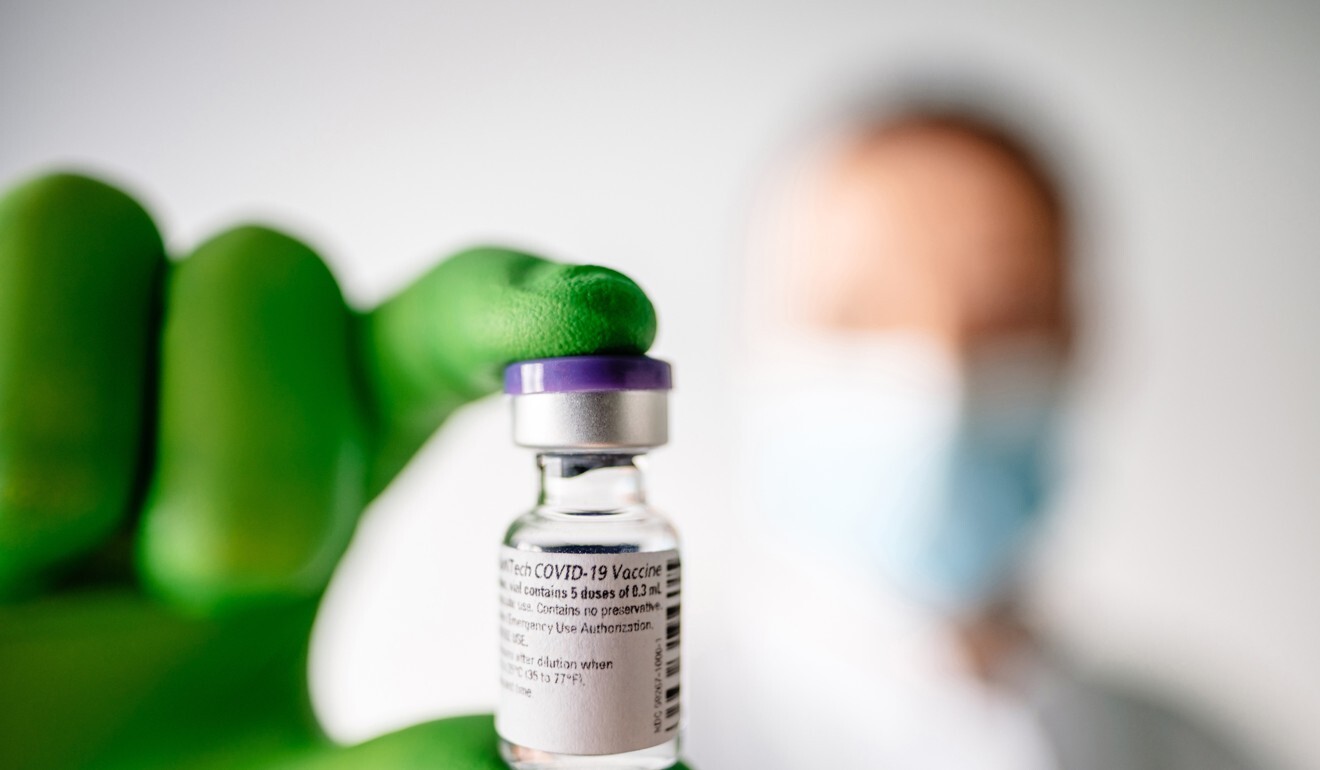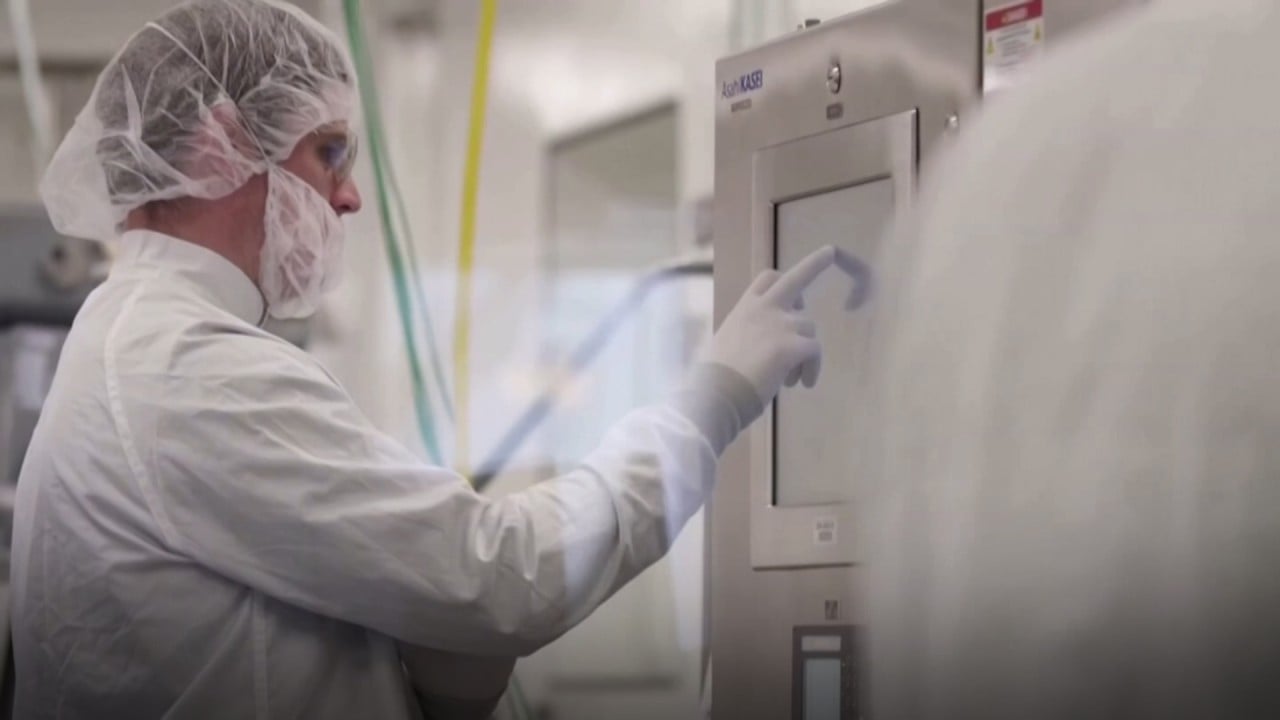
After Britain, US could be next to approve Pfizer and BioNTech’s coronavirus vaccine for use
- US Food and Drug Administration’s vaccine advisory committee will meet on December 10
- BioNTech official says company is engaged with agencies in several countries and will be ready to roll out vaccine quickly after approvals
After Britain became the first country to grant emergency approval on Wednesday to a coronavirus vaccine developed by Pfizer and BioNTech, the US could be the next country to authorise its use.
The US Food and Drug Administration said that its vaccine advisory committee would meet on December 10, with its results announced soon after. The vaccine makers have earmarked 100 million doses for the US, costing US$1.96 billion, with the option for an additional 500 million doses, according to BioNTech, a German drug maker based near Frankfurt.
Sean Marett, the chief commercial officer of BioNTech, said on Wednesday the company was engaged with regulatory bodies in several countries and would be ready for roll out quickly after approvals.
“The UK is the first approval today, we’re absolutely delighted about that. But we’re not stopping there, we have the US review on 10 December. EU is expected to come to a decision in December,” Marett said at a news conference on Wednesday.
“We expect further regulatory discussions with a number of parties and bodies across the world in the coming weeks and months,” he said.
A vaccine is of critical need in the US, the global leader in confirmed coronavirus cases and deaths. According to data compiled by Johns Hopkins University, the country, where the pandemic has raced out of control, had 13.7 million cases and 270,728 deaths as of Wednesday.
The mRNA-based vaccine, known as BNT162b2, is administered in two doses; results from the late-stage trial have shown a 95 per cent effective rate at preventing the Covid-19 coronavirus, according to Pfizer, the pharmaceutical giant based in New York.
The vaccine is ready to be rolled out within days, with distribution of the first 800,000 doses to begin next week in Britain, and 40 million doses scheduled to be distributed there in stages this month and in 2021. It will be deployed through the National Health Service Trusts, large-scale vaccination sites and community or primary care providers, according to BioNTech.
Doses are to be shipped from Belgium to Britain in specialised freezers that can hold between 1,000 and 5,000 doses. Each vial of vaccine contains five doses after dilution. Once diluted with saline, the vaccine must be injected within six hours, according to BioNTech.

The vaccine requires cold-chain distribution as it needs to be stored at -70 degrees Celsius (-90 degrees Fahrenheit). But once thawed, Marett said, it can be stored for up to five days refrigerated at between 2 and 8 degrees Celsius (35 to 46 degrees Fahrenheit).
Mark Eccleston-Turner, a lecturer in law at the University of Keele in Britain who researches vaccine access, cautioned that a mass vaccination programme still needs to be established.
“I think it’s very good news. Obviously, we are a long way from a mass vaccination campaign. There will only be a small number of doses available for quite some time,” he said.

03:13
World gears up to distribute Covid-19 vaccines as drug makers await medical regulator approvals
“But it means we can start to immunise and hopefully reduce the pressure on the health system and protect the most vulnerable people from serious disease.”
Marett said that BioNTech did not view other Covid-19 vaccine candidates as competition.
“I think the question is how quickly can we get back to normal life again? And all those vaccines that will be approved will be able to contribute to that. That’s certainly how we see it,” he said.

